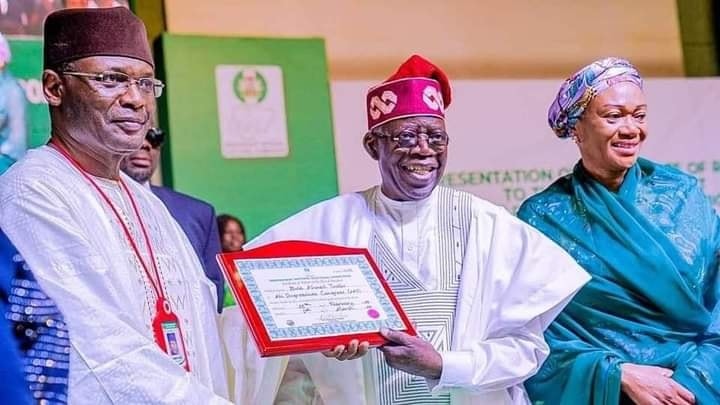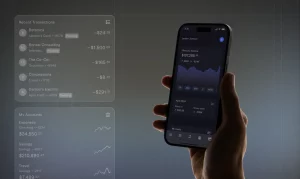Peter Obi and Atiku Abubakar, candidates in the recent Nigerian presidential elections, have filed election petitions accusing the Independent National Electoral Commission (INEC) of deviating from the Electoral Act and technologically manipulating results. Atiku claims that INEC reconfigured the Bimodal Verification and Accreditation System (BVAS) with software that rigged the election in favour of Bola Ahmed Tinubu.
The provisions of the Act
The election petition will be determined by the 2022 Electoral Act. The Act provides that, by virtue of Sections 47(2), 60(1, 2, and 5), 64(4a and 4b), and 64(5), INEC is empowered to transmit election results electronically in real-time. However, there is no mention of the words “BVAS” or “IREV” in the Electoral Act. The Act only gives INEC the power to transmit the election results in any manner it deems fit.
During a plenary session, Senator Ahmed Lawan, the senate president said that transmission in the Act meant that “what we have passed is to transfer all the paperwork that we normally do while the agents and everybody there have the papers. INEC will now scan or snap the result sheets and transfer them.”
INEC’s alleged 3rd-party software
Atiku Abubakar’s petition, among many things, accuses INEC of using third-party software called Device Management System (DMS) to manipulate the results of the February 25th presidential election. The petition alleges that this premeditated manipulation was the real reason behind the delayed transmission of the results and not technical glitches, as INEC had claimed.
The Electoral Act mandates the commission to electronically transmit results from the polling units to the collation systems. This is to eliminate events of ballot destruction or theft from significantly affecting the results, according to the Electoral Commission’s manual.
Prior to the elections, the INEC Chairman repeatedly told the public that the commission will transmit results using the Bimodal Verification and Accreditation System (BVAS) to the commission’s result viewer (IReV) in real-time. Although the Senatorial election results and data were successfully streamed to the IReV for public viewing, the presidential election results were not available on the IReV even several hours after the election had ended.
Videos on social media showed INEC agents struggling to access the BVAS portal for the presidential election, claiming that they didn’t have the right passwords, while others had difficulty uploading pictures of the forms where they had handwritten the results and accreditation data. INEC had put out a notice saying the commission was experiencing technical glitches due to the scale of the election participation.
Atiku disagrees, alleging that the INEC delay and non-adherence to the mandate of the Electoral Act were intentional and part of its plan to influence the results in favour of Tinubu. The petition claims that Atiku has proof that the DMS was introduced by an IT consultant, Suleiman Farouk, and that the introduction altered the configuration that INEC’s ICT team head, Mr. Chidi Nwafor, had initially done. This new configuration allegedly allowed the BVAS to monitor, quarantine, and filter the data before transmission to the endpoint.
The petition also accuses INEC of using the DMS to withhold passwords that the agents at polling units needed to upload presidential results, contradicting the commission’s claim of technical glitches due to the unpreparedness of the commission for the scale of the election. Atiku plans to subpoena several parties who conducted tests such as quality assurance, vulnerability assessment, penetration testing, and other relevant tests to testify to the readiness of the system. This will include PricewaterhouseCoopers (PWC), Emperor Technology Limited (BVAS Manufacturers), Activate Technologies Limited (BVAS Supplier), Sulfman Consulting Ltd, and other expert witnesses.
Peter Obi’s prayers
Peter Obi’s petition asserts that Amazon’s hosting platform (AWS) is the “world’s most comprehensive and broadly adopted platform” for managing data in real-time. The Labour party candidate also asserts that INEC’s data is still on AWS’s servers and as such “ought to be the same” as the announced results. Based on these assertions, Obi wants to subpoena relevant Amazon staff to testify in court.
Obi also wants to nullify the results in Benue and Rivers States. His petition claims that INEC “reduced, tampered with and falsely represented” his votes in both states and that INEC added the votes to that of Tinubu. His petition also claims that INEC deliberately uploaded blurred results in a bid to conceal his votes. His claims rely on a “Forensic Report” of the election result.
The petition claims that votes uploaded from polling units in 13 states exceeded the number of accredited voters on BVAS in those polling units. His petition also claims that without the various infractions by INEC, he would have won the election.























